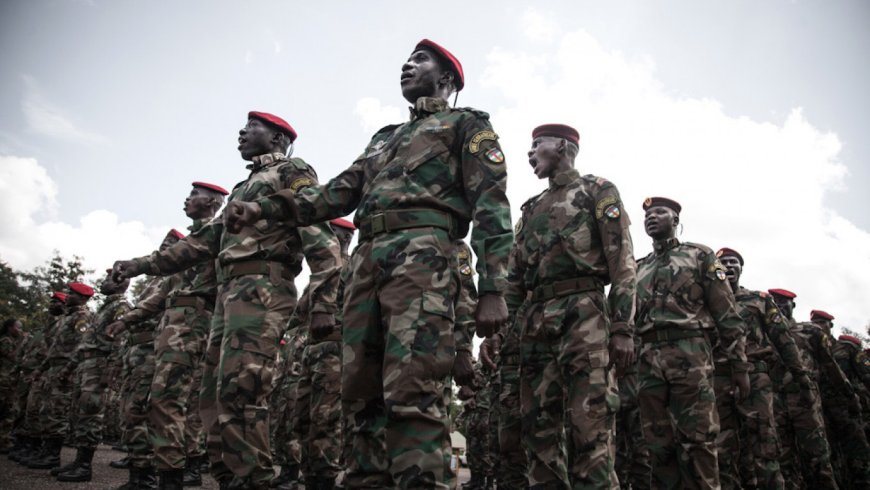Africa’s Silent Coups: What’s Behind the Growing Wave of Military Takeovers?
A surge in military coups is sweeping across Africa, from West to Central regions. What’s driving this alarming trend, and what does it mean for democracy and regional stability?

Over the last five years, Africa has witnessed an alarming return of military coups, unsettling the continent’s fragile democracies and raising concerns across the global diplomatic landscape. From Mali and Burkina Faso in the west to Sudan and Gabon, the pattern is disturbingly familiar: elected governments ousted, constitutions suspended, and juntas installed under the pretense of national rescue.
The African Union (AU) and international actors have repeatedly condemned these takeovers, but real consequences remain rare. Analysts and human rights advocates are now asking hard questions: Why are military coups surging again in Africa? Who benefits? And what does this mean for the continent’s democratic future?
The Coup Resurgence: Numbers That Demand Attention
According to Africa Center for Strategic Studies, at least eight successful coups occurred in Africa between 2020 and 2024. Dozens more were attempted or plotted. This reverses decades of progress, where African nations—under pressure from international partners—transitioned to multiparty systems.
Here's a look at recent notable coups:
-
Mali (2020, 2021) – A two-stage coup led to a military-dominated interim government
-
Guinea (2021) – Alpha Condé ousted after seeking a third term
-
Sudan (2021, 2023) – Repeated breakdowns between military and civilian power-sharing deals
-
Burkina Faso (2022, twice) – Overthrown due to escalating jihadist insurgencies
-
Gabon (2023) – Military seized power hours after controversial presidential election results
-
Niger (2023) – Military cited corruption and insecurity as pretexts for intervention
These are not isolated incidents—they form part of a broader continental trend.
Drivers Behind Africa’s Coup Epidemic
1. Weak Democratic Institutions
Many African democracies suffer from fragile checks and balances, personalized rule, and politicized militaries. In countries like Guinea and Chad, presidents manipulate constitutions to extend their rule, sowing disillusionment.
As noted by Freedom House, public trust in democratic systems is declining in regions plagued by elite impunity and governance failures.
2. Security Crises and Insurgencies
The Sahel region, in particular, has become a battleground of extremist violence. In Mali, Burkina Faso, and Niger, military leaders justified their takeovers by claiming that civilian governments failed to protect citizens from groups like al-Qaeda and ISIS-affiliated insurgents.
While security is a valid concern, analysts argue that juntas have done little to improve conditions—and often clamp down on media and civil society instead.
3. Foreign Interference and Opportunism
A number of African coups are linked to shifting geopolitical alliances. Russia's growing presence, particularly via Wagner Group mercenaries in Mali and the Central African Republic, has complicated regional stability. At the same time, the withdrawal of French forces from the Sahel has left a vacuum exploited by both militants and militaries.
The International Crisis Group has warned that international power struggles risk turning Africa’s fragile states into proxies for foreign rivalries.
4. Economic Mismanagement and Social Inequality
Rising youth unemployment, food insecurity, and inflation have led to massive dissatisfaction with ruling elites. The COVID-19 pandemic, followed by the ripple effects of the war in Ukraine, severely disrupted African economies.
In many cases, military takeovers have been tacitly supported by civilians, particularly where governments are seen as corrupt or indifferent to everyday suffering.
The Role of the African Union and ECOWAS: Bark with No Bite?
Institutions like the African Union (AU) and ECOWAS have condemned coups and sometimes imposed sanctions, but enforcement remains weak. In several instances, junta leaders were invited to negotiations, effectively legitimizing their rule.
In 2023, ECOWAS threatened to intervene militarily in Niger, but the regional bloc eventually backed down under pressure from member states who feared the precedent of regime change by force.
This raises questions about the effectiveness of African-led diplomatic tools—and whether the AU can uphold its own charter on unconstitutional changes of government.
Is There a Path Back to Civilian Rule?
Some juntas, like those in Sudan and Burkina Faso, have proposed transitional roadmaps to elections. Yet deadlines are routinely delayed, with juntas citing “security conditions” as justification.
Civil society groups argue that real democratization requires:
-
Independent electoral commissions
-
Demilitarized politics
-
Constitutional reform
-
Greater civic engagement, especially by youth and women
As one analyst from the Brookings Institution put it, “Returning to the status quo ante is not enough. Africa must build resilient, inclusive institutions—or these cycles will repeat indefinitely.”
Public Reaction: Between Hope and Despair
Interestingly, some African citizens have welcomed coups—especially when rulers are seen as out-of-touch oligarchs. Crowds in Ouagadougou and Conakry celebrated the removal of entrenched leaders. But these celebrations are often short-lived.
As coups drag on, authoritarianism returns under new uniforms, often worse than before.
Activists warn that these takeovers may embolden other militaries and normalize power seizures as a solution to political frustration—a dangerous precedent for the continent.
Global Stakeholders: Selective Outrage?
The international community’s response to Africa’s coups has been uneven. While the United States, EU, and UN have issued statements of concern, actual penalties have been rare.
Critics argue that Western nations prioritize counterterrorism partnerships and resource access (like uranium in Niger or gold in Mali) over democratic principles. This selective outrage undermines local trust and reinforces narratives of neo-colonialism.
Conclusion: Democracy at a Crossroads
Africa is at a critical democratic inflection point. The return of military coups threatens decades of progress and highlights the urgent need for deeper reform—not just cosmetic elections.
Building strong institutions, empowering youth and civil society, and ensuring regional bodies like the AU are given teeth—not just talk—must be priorities in the years ahead.
The future of African democracy depends not just on condemning coups but on addressing the systemic issues that make them possible.




















































